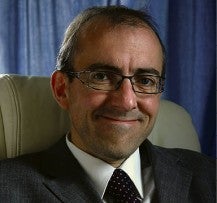Whether your company sells cars, cabinets, cosmetics or consulting services, all strategic change in an organisation is driven through projects and programmes. Organisations that have the right talent for executing strategic initiatives have a critical capability that gives them a competitive advantage. Excellence in attracting, training and retaining talent is the key to unlocking that capability.
The need is critical. Project Management Institute (PMI) has projected that 1.5 million new project management roles will be created each year through 2020. However, many companies will have difficulty filling these positions with truly qualified candidates.

Brian Weiss, Vice president
Practitioner career development
Talent deficiencies hamper strategy implementation efforts 40 per cent of the time, according to the Economist Intelligence Unit and PMI study Rally the Talent to Win. Only 23 per cent of respondents in the study believe senior leadership gives project and programme talent management the priority it deserves. This lack of attention is cited as a significant barrier to achieving organisational objectives.
According to Brian Weiss, vice president of practitioner career development for PMI: “Effective talent management for project professionals begins even before the planning stages of a project with selective recruitment, ongoing training and advanced career development.”
While approaches to talent management for project professionals vary across organisations, the skills required by today’s project managers are clear. Well-rounded project managers encompass the multiple skills that make up PMI’s Talent Triangle™, with the requisite technical project management skills, strategic and business management skills, and leadership skills to make projects work from the ground up.
[embed_related]
In additional to proven technical acumen, they have the business experience and real-world perspective necessary to align projects with an organisation’s long-term goals. More importantly, they’re able to maintain collaborative relationships with the leaders who are driving that strategy.
Leadership skills make the third side of the talent triangle and leadership is the catalyst that takes a project from the boardroom table to the showroom floor. Successful project managers must wear many hats and understand multiple business “dialects” to communicate effectively with stakeholders from all areas of the org chart.
As organisations continue to make complex, higher-stakes initiatives their top priority and place a greater premium on those who can execute, the need for ongoing development of project talent will become more apparent and more acute
“Talent development is a high priority for us and our Project and Programme Management Development Needs Analysis (PPMDNA) programme has won top industry awards for its capability to help project management professionals improve,” says Dave Gunner, head of PPM Academy, Hewlett Packard Enterprise.
“Additionally, PMI’s Project Management Professional (PMP)® certification provides us with a consistent framework and knowledge base for our project managers across the globe who embody the qualities of the PMI Talent Triangle. Our project managers, equipped with these skills, are able to execute successfully against projects and programmes, and contribute to accomplishing overall strategic goals.”

Dave Gunner, Head of PPM Academy
Hewlett Packard Enterprise
A variety of factors affect the complex equation of project management talent, talent management, and executing strategy through projects and programmes. And these factors, external or internal, universal or unique, require attention and action from all stakeholders.
As organisations continue to make complex, higher-stakes initiatives their top priority and place a greater premium on those who can execute, the need for ongoing development of project talent will become more apparent and more acute.
Mr Gunner sees this first-hand: “As initiatives continue to grow, so does the challenge of effectively managing an expanding range of project elements. In a global climate where speed and precision are essential to success, we leverage PMI’s standards to help keep key initiatives on track amid shifting market conditions and across multiple departments, divisions, regions and time zones.”







